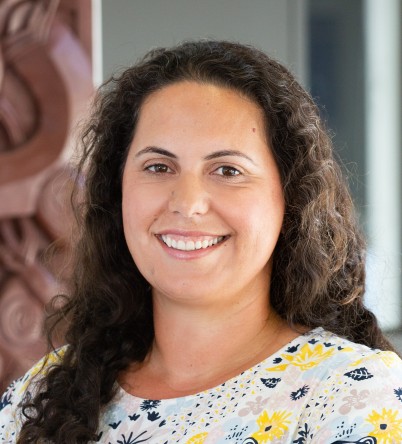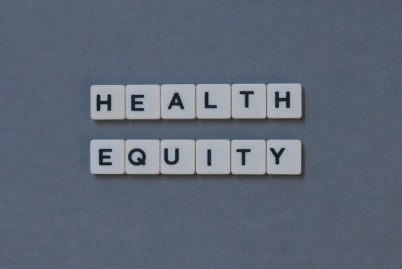Together with our partners - the Accident Compensation Corporation, the National Science Challenge Ageing Well, PHARMAC and Breast Cancer Foundation New Zealand - we are pleased to announce the recipients of three Requests for Proposals through our Partnership Programme, all of which have a strong health equity focus.
2020 ACC-HRC Achieving Equity for Ageing Māori RFP
The HRC and Accident Compensation Corporation (ACC), and just recently, the National Science Challenge Ageing Well, formed a partnership to fund innovative Māori health research that will contribute evidence to help achieve equity for ageing Māori through improved injury prevention initiatives, addressing barriers to accessing ACC services, and effective injury rehabilitation. The funders are pleased to announce below the successful recipients of the 2020 ACC-HRC Achieving Equity for Ageing Māori Request for Proposals (RFP).
Ms Katrina Bryant, Te Runanga o Otakou
Taurite Tū - Achieving equitable injury prevention outcomes for ageing Māori
$881,944
Lay summary:
Falls are a leading cause of injury and lead to major impacts for ageing Māori. ACC acknowledge there are inequities for older Māori accessing injury prevention and rehabilitative services. Te Rūnanga o Ōtākou (TRO) in collaboration with University of Otago falls and injury prevention researchers, have developed an effective falls prevention template for ageing Māori, Taurite Tū. Taurite Tū research outcomes demonstrate statistically significant improvement in falls risk and positive engagement of Māori community. TRO intends to further investigate how the Taurite Tū template can be further used as a platform for ACC towards broadly achieving equitable outcomes in other areas of Aotearoa for ageing Māori in injury prevention, and improve access to ACC services and injury rehabilitative services. As with the original Taurite Tū research, the proposed research will be guided by evidence-based, physiotherapy research findings, mātauraka Māori and kaupapa Māori research methodology.
Ms Joanna Hikaka, The University of Auckland
Whaioranga te Pā Harakeke – Iwi-driven injury prevention and recovery for Māori
$1,421,318
Lay summary:
Māori older adults are more likely to experience injury than non-Māori, yet less likely to effectively access ACC prevention/rehabilitation services, further increasing inequities in health outcomes. This project will use paeārahi (health navigators) who come from their own iwi and are upskilled to facilitate health delivery. This project will expand their roles to address injury prevention (e.g. falls exercises), ACC service access, and recovery and rehabilitation. It will use local knowledge and networks, and mātauranga Māori. Local hauora providers will facilitate paeārahi integration with older Māori communities across Te Arawa iwi boundaries. Access, activity and wellbeing outcomes will be tracked over time and paeārahi sustainability will be established. This project aims to build an evidence-base to support enhanced Māori older adult access/engagement with ACC services, and identify iwi-designed solutions to increase ACC responsiveness to Māori older adults with potential benefits for individual, whānau, hapū and iwi.
2020 Achieving Equitable Access to Medicines RFP
The focus of the 2020 Achieving Equitable Access to Medicines Request for Proposals (RFP) - a partnership between the HRC and PHARMAC - is to fund innovative, high-quality and value-added research that aligns with PHARMAC’s strategic priority to achieve equitable access to funded pharmaceuticals, and the HRC’s focus on building and strengthening the research evidence base to achieve health equity in Aotearoa New Zealand. The HRC and PHARMAC are pleased to announce below the following successful recipient for this funding.
Ms Joanna Hikaka, Ngā Kaitiaki o Te Puna Rongoā o Aotearoa - The Māori Pharmacists' Association

Ms Joanna Hikaka will receive funding through two equity-focused Partnership Programme initiatives.
Te Puna Rongoā : Achieving medicines access equity for Māori - Pharmacists' role
$217,942
Lay summary:
Māori do not experience the same benefits from medicines as non-Māori due to inequities in access to, and the quality use of, medicines. Pharmacists are the most commonly visited health professional in New Zealand and can improve medicines access and adherence. This multi-phase study will identify and describe ethnic and regional variations in access to medicines used to treat minor ailments such as scabies, eczema and impetigo. Fifteen focus groups will be conducted with Māori across six New Zealand regions to understand Māori experiences and perceptions of access to medicines used to treat ‘minor ailments’ and identify how pharmacists can better support access to these medicines and support adherence more generally. Pharmacy and health-sector stakeholders will also be interviewed (informed by focus group findings). These areas are under-studied in New Zealand and findings will drive the development of real-world, pro-equity solutions to support the achievement of medicines access equity for Māori.
2020 National Breast Cancer Register
The HRC and Breast Cancer Foundation NZ (BCFNZ) formed a partnership in 2016 to fund research that leverages BCFNZ’s investment in the Breast Cancer Foundation National Register. The register supports a broad range of research, including identifying breast cancer trends, assessing new and existing treatments, and addressing inequities in care.
Both the HRC and BCFNZ are pleased to announce the successful recipient of the 2020 National Breast Cancer Register Request for Proposals.
Professor Michael Eccles, University of Otago, Dunedin
Molecular profiling for precision cancer therapies in breast and ovarian cancer
$199,146
Lay summary:
Hereditary predisposition to breast cancer (BC) and ovarian cancer (OC) frequently occurs in at-risk families, involving genes such as BRCA1, BRCA2 and other genes. Inclusion criteria for hereditary BC/OC screening are based on family aggregation of BC, to inform screening for the presence of germline (mainly) BRCA1/BRCA2 mutations and candidature for precision therapy. However, incidence rates of hereditary BC in New Zealand are unknown. We hypothesise that >5% of hereditary BC/OC families remain undiagnosed. In this project, we will use the BC Register to select 300 patients for analysis of hereditary BC genes, which will allow accurate determination of the incidence of hereditary BC/OC in New Zealand. Māori women, despite having high BC/OC incidence rates, are frequently under-represented, and often fare poorly in outcomes compared to non-Māori. These observations contribute to inequities that Māori women experience for screening and treatment. This project will ultimately contribute to better outcomes for BC/OC patients in New Zealand.
